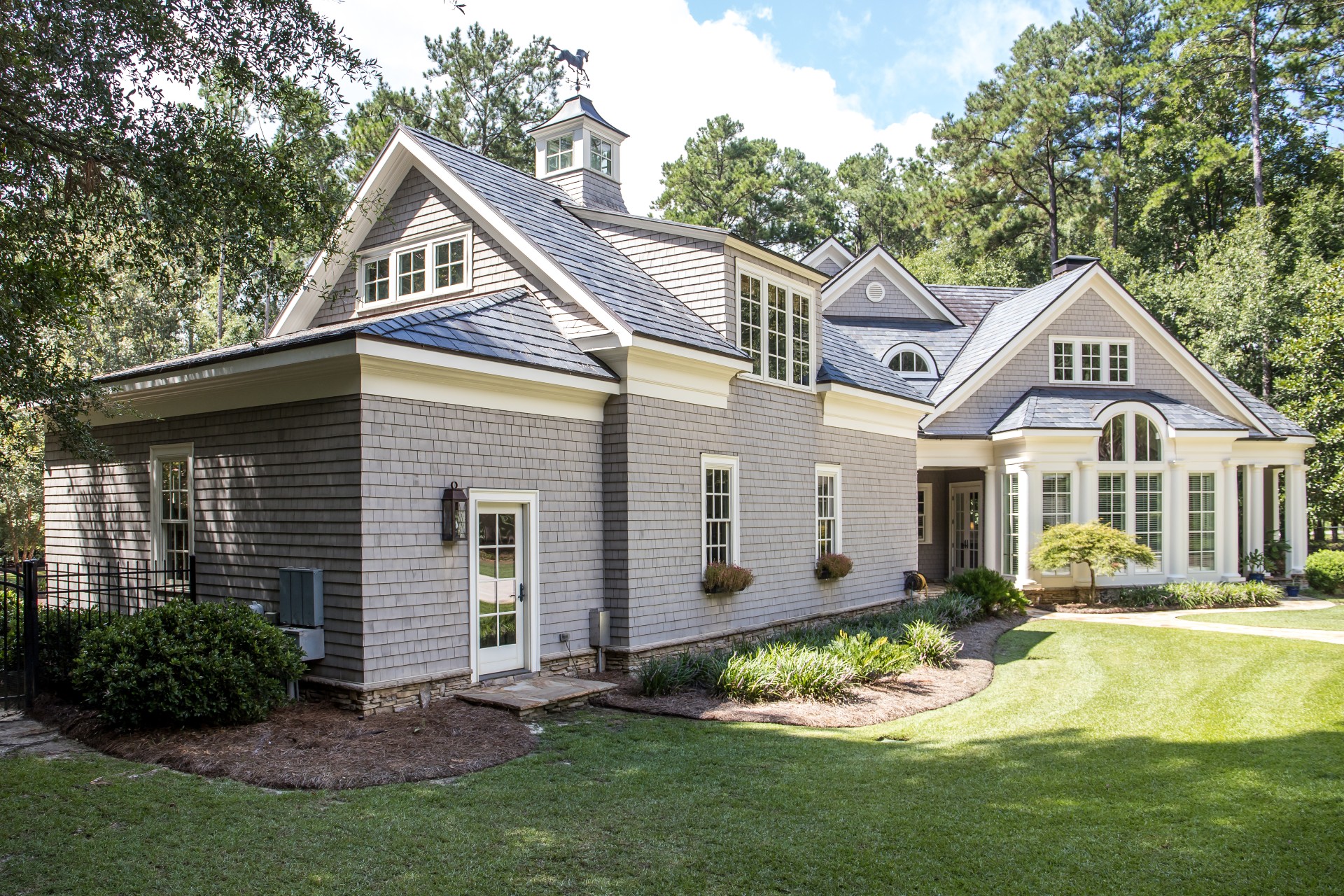We all understand that siding is designed to protect your home from the exterior world. And while its first job is not to insulate your home, many homeowners overlook the importance siding plays in keeping your home’s temperature regulated. So if you’re noticing high energy bills, it may be time to reevaluate your current siding.
Although siding in and of itself does not always solve the problem of interior temperature comfort levels or high energy bills, the right siding combined with proper insulation can greatly improve the energy efficiency of your home. Two of the most common siding types we install in the Kansas City area are James Hardie fiber cement and vinyl. Both come in insulated versions that can help boost your home’s energy efficiency. Here’s a look at how they both perform.
Can the Right Siding Plus Insulation Equal Savings?
While the majority of heat loss in a home occurs through a roof, siding and walls can account for 35% of total home heat loss. Not only does this put extra strain on your heater in the cold months, but it also has a large impact on your heating bills.
When you install a well-insulated siding material, the overall efficiency of your home increases, leading to monetary savings.
Fiber Cement, Vinyl, and R-Value
R-value is the measurement used to assess a material’s resistance to heat transfer, meaning the higher the r-value, the more likely an object is to reject unwanted heat loss. So a higher r-value can, therefore, equate to higher savings on energy bills.
Many forms of siding (on their own) have an R-value of 1 or lower. But insulated fiber cement and vinyl can achieve a much higher resistance to heat transfer.
- James Hardie siding (high-end fiber cement) with built-in foam insulation can achieve an R-value of 3.
- Foam-backed, insulated vinyl siding can reach an R-value of 2 to 3.
When you install siding, you can choose an option with built-in insulation, add insulation inside the walls, or both. What material and insulation levels you need will be based on your specific home, but r-value is an important quality to take into account when combating high energy bills.
Vinyl and Fiber Cement’s Effectiveness
Both vinyl and fiber cement are long-lasting siding materials. Their durability helps protect your interior and your insulation. While these materials may not be the greatest insulators on their own (although most siding materials are not), when coupled with proper insulation, fiber cement and vinyl can keep your home well protected and increase the overall r-value of your siding.
Gain a More Energy-Efficient Siding
You deserve a siding that adds value to your home, both in its appearance and its ability to increase efficiency. At Smart Exteriors, our highly-qualified and certified team of siding contractors can provide you with a seamless installation of high-end, foam-backed fiber cement or vinyl siding to protect your investment and keep your home well-insulated.
If you want to install siding that can help save you money, learn more about how our team can help with our siding services.

